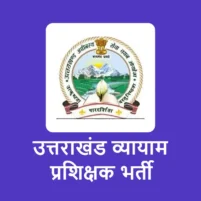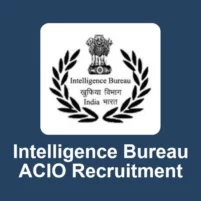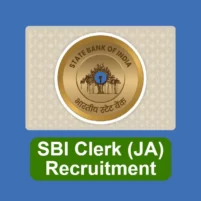CTET- JULY 2013
STRUCTURE AND CONTENT OF SYLLABUS
(Paper II)
Paper II (for classes VI to VIII) Elementary Stage:
a) Child Development (Elementary School Child) 15 Questions
- Concept of development and its relationship with learning
- Principles of the development of children
- Influence of Heredity & Environment
- Socialization processes: Social world & children (Teacher, Parents, Peers)
- Piaget, Kohlberg and Vygotsky: constructs and critical perspectives
- Concepts of child-centered and progressive education
- Critical perspective of the construct of Intelligence
- Multi Dimensional Intelligence
- Language & Thought
- Gender as a social construct; gender roles, gender-bias and educational practice
- Individual differences among learners, understanding differences based on diversity of language, caste, gender, community, religion etc.
- Distinction between Assessment for learning and assessment of learning; School-Based Assessment, Continuous & Comprehensive
- Evaluation: perspective and practice
- Formulating appropriate questions for assessing readiness levels of learners; for enhancing learning and critical thinking in the classroom and for assessing learner achievement.
b) Concept of Inclusive education and understanding children with special needs (5 Questions)
- Addressing learners from diverse backgrounds including disadvantaged and deprived
- Addressing the needs of children with learning difficulties, ‘impairment’ etc.
- Addressing the Talented, Creative, Specially abled Learners
c) Learning and Pedagogy (10 Questions)
- How children think and learn; how and why children ‘fail’ to achieve success in school performance.
- Basic processes of teaching and learning; children’s strategies of learning; learning as a social activity; social context of learning.
- Child as a problem solver and a ‘scientific investigator’
- Alternative conceptions of learning in children, understanding children’s ‘errors’ as significant steps in the learning process.
- Cognition & Emotions
- Motivation and learning
- Factors contributing to learning – personal & environmental
II. Language – I (30 Questions)
a) Language Comprehension (15 Questions)
Reading unseen passages – two passages one prose or drama and one poem with questions on comprehension, inference, grammar and verbal ability (Prose passage may be literary, scientific, narrative or discursive)
b) Pedagogy of Language Development (15 Questions)
- Learning and acquisition
- Principles of language Teaching
- Role of listening and speaking; function of language and how children use it as a tool
- Critical perspective on the role of grammar in learning a language for communicating ideas verbally and in written form;
- Challenges of teaching language in a diverse classroom; language difficulties, errors and disorders
- Language Skills
- Evaluating language comprehension and proficiency: speaking, listening, reading and writing
- Teaching- learning materials: Textbook, multi-media materials, multilingual resource of the classroom
- Remedial Teaching
III. Language – II (30 Questions)
a) Comprehension (15 Questions)
Two unseen prose passages (discursive or literary or narrative or scientific) with question on comprehension, grammar and verbal ability
b) Pedagogy of Language Development 15 Questions
- Learning and acquisition
- Principles of language Teaching
- Role of listening and speaking; function of language and how children use it as a tool
- Critical perspective on the role of grammar in learning a language for communicating ideas verbally and in written form;
- Challenges of teaching language in a diverse classroom; language difficulties, errors and disorders
- Language Skills
- Evaluating language comprehension and proficiency: speaking, listening, reading and writing
- Teaching – learning materials: Textbook, multi-media materials, multilingual resource of the classroom
- Remedial Teaching
IV. (A) Mathematics and Science: 60 Questions
(i) Mathematics (30 Questions)
a) Content (20 Questions)
Number System
- Knowing our Numbers
- Playing with Numbers
- Whole Numbers
- Negative Numbers and Integers
- Fractions
Algebra
- Introduction to Algebra
- Ratio and Proportion
Geometry
- Basic geometrical ideas (2-D)
- Understanding Elementary Shapes (2-D and 3-D)
- Symmetry: (reflection)
- Construction (using Straight edge Scale, protractor, compasses)
Mensuration
Data handling
b) Pedagogical issues 10 Questions
- Nature of Mathematics/Logical thinking
- Place of Mathematics in Curriculum
- Language of Mathematics
- Community Mathematics
- Evaluation
- Remedial Teaching
- Problem of Teaching
(ii) Science 30 Questions
a) Content 20 Questions
I. Food
- Sources of food
- Components of food
- Cleaning food
II. Materials
- Materials of daily use
III. The World of the Living
IV. Moving Things People and Ideas
V. How things work
- Electric current and circuits
- Magnets
VI. Natural Phenomena
VII. Natural Resources
b) Pedagogical issues (10 Questions)
- Nature & Structure of Sciences
- Natural Science/Aims & objectives
- Understanding & Appreciating Science
- Approaches/Integrated Approach
- Observation/Experiment/Discovery (Method of Science)
- InJULY ation
- Text Material/Aids
- Evaluation – cognitive/psychomotor/affective
- Problems
- Remedial Teaching
V. Social Studies/Social Sciences (60 Questions)
a) Content (40 Questions)
I. History
- When, Where and How
- The Earliest Societies
- The First Farmers and Herders
- The First Cities
- Early States
- New Ideas
- The First Empire
- Contacts with Distant lands
- Political Developments
- Culture and Science
- New Kings and Kingdoms
- Sultans of Delhi
- Architecture
- Creation of an Empire
- Social Change
- Regional Cultures
- The Establishment of Company Power
- Rural Life and Society
- Colonialism and Tribal Societies
- The Revolt of 1857-58
- Women and reform
- Challenging the Caste System
- The Nationalist Movement
- India After Independence
II. Geography
- Geography as a social study and as a science
- Planet: Earth in the solar system
- Globe
- Environment in its totality: natural and human environment
- Air
- Water
- Human Environment: settlement, transport and communication
- Resources: Types-Natural and Human
- Agriculture
III. Social and Political Life
- Diversity
- Government
- Local Government
- Making a Living
- Democracy
- State Government
- Understanding Media
- Unpacking Gender
- The Constitution
- Parliamentary Government
- The Judiciary
- Social Justice and the Marginalised
b) Pedagogical issues (20 Questions)
- Concept & Nature of Social Science/Social Studies
- Class Room Processes, activities and discourse
- Developing Critical thinking
- Enquiry/Empirical Evidence
- Problems of teaching Social Science/Social Studies
- Sources – Primary & Secondary
- Projects Work
- Evaluation
Note: For Detailed syllabus of classes I-VIII, please refer to NCERT syllabus and textbooks.
Subscribe to Free Email Updates!



